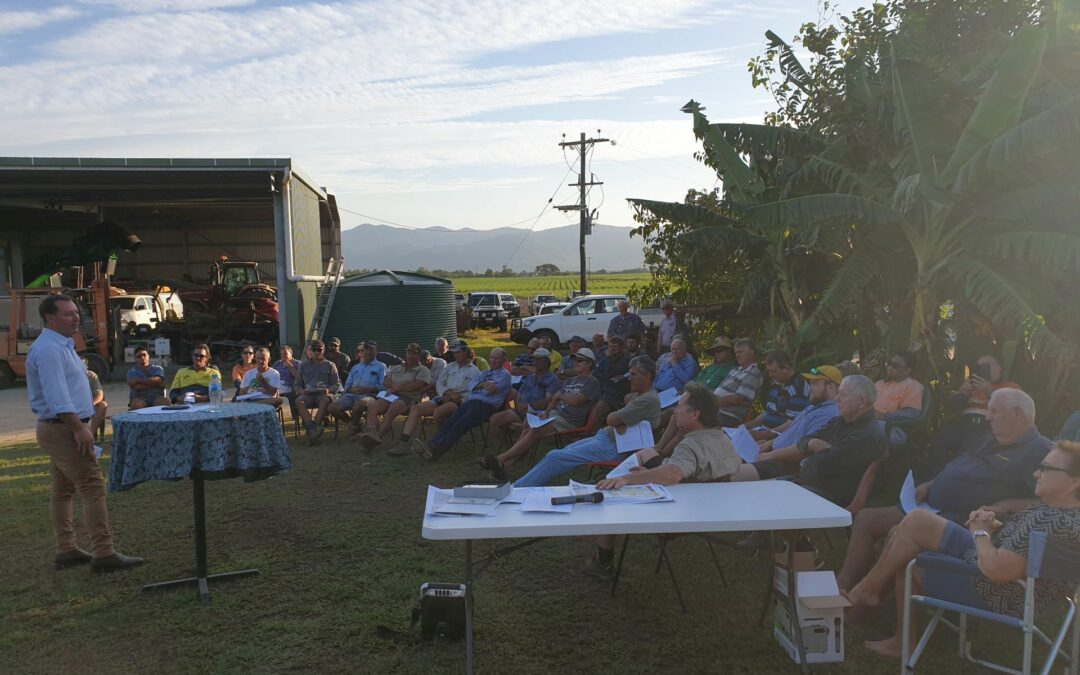Recently the Tully variety Management group (TVMG) met for an end of year wrap up meeting.
At this meeting we discussed the results of the 2020 variety sampling work which helps determine which of the new varieties will be recommended for commercialization over the next few years.
The next meeting will be held in 2021 prior to planting so for anyone who missed yesterday’s event don’t worry, the information will be presented again in 2021.
Basically after the 9 variety trials conducted in 2020, we have a decent idea of how the new and new varieties will work or in some cases won’t work for our various sub districts.
At this meeting we also reported on other aspects of the TVMG 2020-25 strategic Workplan one of which is to maintain the high producing older varieties like Q208.
In 2020 Q208 was again our main variety. Back in 2015 it was supplying close to 50% of the crop, but such reliance on one variety can be an issue in any agricultural production system as it can lead to disease outbreaks.
Since 2016 the aim of the TVMG s to prolong the life of Q208 by reducing reliance on it from 50% to 35% by 2020. Normally 25% of one variety is considered “safe” for reducing the risk of a disease outbreak but Q208 is such an exceptional variety we made it 35%.
In 2020 Q208 provided 37% of the crop so it is a good result and is only possible because some of the newer varieties have taken some pressure of Q208. Varieties like Q250, Q240 and Q253 which were all trialed between 2013-15 have been commercial now for a few years and provide about 25% of the crop between but like we mentioned in the last column they have their limitations and Q208 is still the most reliable variety we have and we need to keep it going for as long as possible
To date a total of 29 varieties have been released for the wet tropics sugar industry since 2001, with 18 of them released since 2012. Of these 29, currently 18 are available and recommended for Tully and of the 18 released since 2012 we recommend 13 based on local trial work.
The situation we are trying to avoid is moving too fast into commercializing a variety until we have tested them locally for 2 -3 years for germination, CCS curve trends, ratoonability and how they present to the harvester. The smaller more intense trials we do involve a lot of sampling, and this gives us a good idea of how they will or won’t work perform commercially in a fairly short time.
Hopefully our work has avoided some issues where cane has to be ploughed out at 2nd ratoon because it doesn’t work commercially in a particular sub district. Also we are trying to fast track the ones that do show good results in our local trial work and now we have wrapped up 2020, we start to look at the work plan for 2021! Many thanks needs to go to the growers who provide the actual variety sites, TCPSL, Canegrowers and SRA and of course TSL management for supporting this work.

